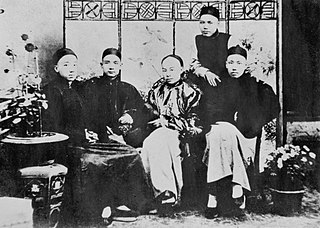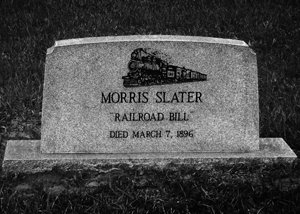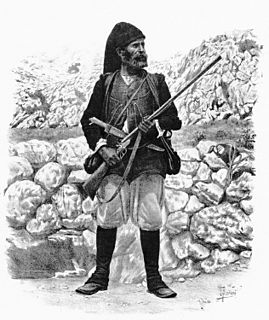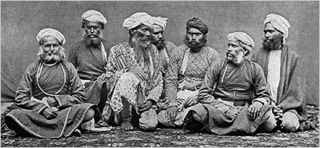 W
WIn historical legal systems, an outlaw is one declared as outside the protection of the law. In pre-modern societies, all legal protection was withdrawn from the criminal, so that anyone is legally empowered to persecute or kill them. Outlawry was thus one of the harshest penalties in the legal system. In early Germanic law, the death penalty is conspicuously absent, and outlawing is the most extreme punishment, presumably amounting to a death sentence in practice. The concept is known from Roman law, as the status of homo sacer, and persisted throughout the Middle Ages.
 W
WBandits is a book by Eric Hobsbawm, first published in 1969. It focuses on the concept of bandits within the mythology, folklore, and literature of Europe, specifically its relation to classical Marxist concepts of class struggle.
 W
WBanditry is a type of organized crime committed by outlaws typically involving the threat or use of violence. A person who engages in banditry is known as a bandit and primarily commits crimes such as extortion, robbery, and murder, either as an individual or in groups. Banditry is a vague concept of criminality and in modern usage can be synonymous for gangsterism, brigandage, marauding, and thievery.
 W
WA bashi-bazouk was an irregular soldier of the Ottoman army, raised in times of war. The army chiefly recruited Albanians and Circassians as bashi-bazouks, but recruits came from all ethnic groups of the Ottoman Empire. They had a reputation for bravery, but also as an undisciplined group, notorious for looting and preying on civilians as a result of a lack of regulation.
 W
WThe betyárs, were the highwaymen of the 19th century Kingdom of Hungary. The "betyár" word is the Hungarian version of "Social Bandit".
 W
WBrigandage is the life and practice of highway robbery and plunder. It is practiced by a brigand, a person who usually lives in a gang and lives by pillage and robbery.
 W
WPhoolan Devi, popularly known as "Bandit Queen", was an Indian female rights activist, bandit and later a member of parliament.
 W
WFayaz was one of the underworld dons of Bangalore in the 1980s and 1990s. He was called ′Koli′ Fayaz because he ran a poultry farm.
 W
WFjalla-Eyvindur was an Icelandic outlaw. He and his wife Halla are reported to have fled into the remote highlands of Iceland after 1760. They lived in the wilderness for 20 years. A hot spring named Eyvindarhver is named after him.
 W
WThe Four Bandits, Four Outlaws (四大寇) or the Four Desperados (清末四大寇) was a nickname given to a group of 4 young students in Hong Kong who were keen on discussing the current issues in China, and aspired to overthrow the corrupt Qing dynasty run by the Manchus. The four bandits were Yeung Hok-ling, Sun Yat-sen, Chan Siu-bak and Yau Lit. "Yeung Yiu Kee" (楊耀記), Yeung's family shop located at 24 Gough Street in Hong Kong, used to be the meeting place of the bandits. One of the Four Bandits, Sun Yat-sen later became the leader of China Revolutionary Alliance and the first Provisional President of the Republic of China. At the Dr Sun Yat-sen Museum, statues made out of wax were made of the exact picture taken.
 W
WGrettis saga Ásmundarsonar is one of the Icelanders' sagas. It details the life of Grettir Ásmundarson, a bellicose Icelandic outlaw.
 W
WA hajduk is a type of irregular infantry found in Central and parts of Southeast Europe from the early 17th to mid 19th centuries. They have reputations ranging from bandits to freedom fighters depending on time, place, and their enemies.
 W
WAntonis Katsantonis was a notable Greek klepht who lived in the era before the Greek War of Independence.
 W
WColonel Plug, also known as Colonel Fluger and "The Last of the Boat-Wreckers", who existed sometime between the 1790s and 1820, was the legendary river pirate who ran a criminal gang on the Ohio River in a cypress swamp near the mouth of the Cache River. The outlaw camp of Colonel Plug was supposedly below the river pirate hideout of Cave-In-Rock and the U.S. Army post at Fort Massac, which monitored and policed frontier river traffic just above the confluence of the Ohio and Mississippi Rivers.
 W
WMorris Slater was an African American murderer, notable for many dramatic escapes from the law. He acquired the name Railroad Bill from his vendetta against the railroads, which started when he was thrown off a moving train for not paying. He committed armed robberies from freight-trains, killing many railroad officials and lawmen. Although there was a price on his head for some years, he evaded capture through ingenuity and exceptional athletic power. He was eventually shot dead in an ambush at a store which he was known to visit. He is celebrated in the folk-ballad Railroad Bill, made famous by Lonnie Donegan, among others.
 W
WKotwal Ramachandra was one of the underworld dons of Bangalore in the 1970s and 1980s. He covered Bengaluru North and operated from Kodandarampura/ Srirampura areas. He was a contemporary of his rival M.P.Jayaraj. There was a power struggle between the two as to who would rule the Bangalore underworld under the cloud of the new generation crime boss Oil Kumar, but M.P.Jayaraj was successful in bumping off Kotwal Ramachandra with the help of Agni Shridhar, Bachchan and Varadharaja Nayak. Kotwal Ramachandra was from Shimoga and worked in the Indian Navy for a brief while. He was a well-built man, over 6 feet tall, and used knives and sickles as his weapons. He was backed by some politicians in his heyday. He was killed on 22 March 1986 by a four-member goonda team, supported by Jayaraj. He was killed in a farm house near Allalasandra, Tumkur and his death was not known to outside world even after a month. He believed in many superstitions even through his prime time.
 W
WVincent "Ivanhoe" Martin, known as "Rhyging", was a Jamaican criminal who became a legendary outlaw and folk hero, often regarded as the "original rude boy". He became notorious in 1948 after escaping from prison, going on the run and committing a string of robberies, murders and attempted murders before he was gunned down by police. In subsequent decades his life became mythologised in Jamaican popular culture, culminating in the 1972 cult film The Harder They Come, in which he is portrayed by Jimmy Cliff.
 W
WGiovanni Corbeddu Salis was a Sardinian outlaw.
 W
WThuggee refers to the acts of the Thugs, who were organised gangs of professional robbers and murderers. The English word thug traces its roots to the Hindi ठग, which means 'swindler' or 'deceiver'. Related words are the verb thugna, from the Sanskrit स्थग and स्थगति. This term, describing the murder and robbery of travellers, was popular in the northern parts of the Indian subcontinent and particularly India.
 W
WSubedar Paan Singh Tomar was an Indian soldier, athlete, and later, an outlaw. He served in the Indian Army, where his talent for running was discovered. He was a seven-time national steeplechase champion in the 1950s and 1960s, and represented India at the 1958 Asian Games. After a premature retirement from the army, Tomar returned to his native village. He later gained notoriety as a Chambal Valley rebel when he resorted to violence after a land feud there. In late 1981, Tomar lost his life in a shootout with hundreds of armed members of a police task force sent to capture him.